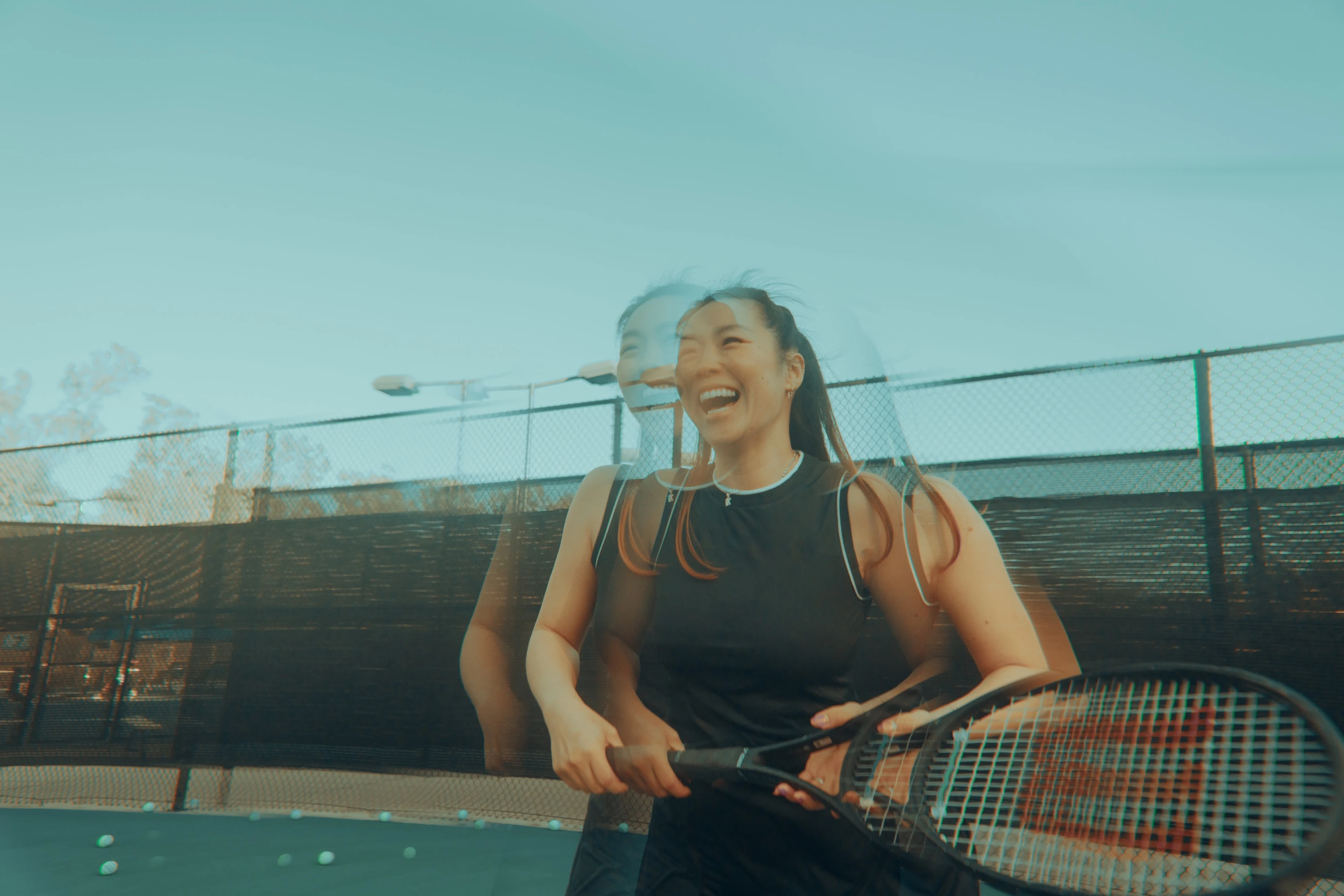

How Sarah Kim created respite and community on the tennis court in a time of increasing violence against Asian Americans.
Like many athletic sister duos, growing up we called ourselves Venus and Serena. Our last name was Kim, not Williams, but it worked for us.
We would no longer be typecast as the girl from Rush Hour singing Mariah Carey's Fantasy, or figure skater Kristie Yamaguchi. We dreamt of being sister Grand-slam titleholders, following in their footsteps, competing to play each other in singles finals or beating whoever was across the net as the best doubles team.
I could be anyone on the court. And as an outgoing but “nice” Korean-American high school girl, I craved this chance to channel some of tennis’s other personalities. Andre Agassi showed you could be expressive and be the “bad boy” wearing acid-washed denim. I remember Michael Chang, a young Grand Slam victor. His last name alone had me overjoyed. Serena and Venus were our role models—Black, female, powerful— it was a welcome anomaly on the court. Anna Kournikova owned the hot-girl era of tennis with her style and attitude. Then came Maria Sharapova—clean and concise. Billie Jean King and Martina Navratilova paved the way for players like Coco Gauff and Naomi Osaka to use tennis as a platform for mental health advocacy and social change. The diversity of personalities, characters, styles, and cultures on the court – it showed there was space for me too.
But that freedom of expression rarely extends beyond the lines of the court. When the origins of the Covid-19 virus were traced to a single city in China, the entire East Asian population felt it. People like to find someone to blame. According to a study conducted by the California State University, hate crimes rose by 339 percent in the United States between 2021 and 2022. As crimes rose, so did my own awareness of what it felt like to be a target. As a person of color, microaggressions are an unfortunate reality of what it means to exist, but it was now coupled with anger and fear. Fear I had never felt before. I developed a new empathy for my Black brothers and sisters.
I found myself wanting to go outdoors and be a pillar for my community. To be confident and denounce hate by showing up unapologetically. So I turned to tennis. It wasn’t the same—nothing was for a long time. A player at the tennis club didn't want to shake my hand when we were introduced. Maybe they were at risk and wanted to be cautious, or maybe they were sweat-conscious. Or maybe it was because I was Korean. But on the court, there was relief and freedom. That’s the beautiful thing with sport—it shifts all your focus to how fast the volley is coming, or whether you can reach the drop shot. It doesn't change reality, it doesn't minimize hate, but it limits your thoughts to right here, right now.
After being indoors for so long, I craved in-person connection. That’s why I created By Way of Us, a curated event series for women looking for real community. Within a few months, we were hosting regular workshops for entrepreneurial women, group therapy sessions for moms, Wine 101 Nights, comedy shows, and Casual Tennis.
Casual Tennis is exactly what it sounds like. An easygoing clinic for women. I’ve rallied with women who’ve played for years. They’re hitting the ball to beginners who are discovering the power of a racquet for the first time. There are new moms who just need the release of crushing an overhead. A friend battling a cancer diagnosis came looking for an escape, and motivation to get better. On the court, we can feel safe and welcome.
To be an Asian-American woman playing tennis is to honor the dream I had when I was 12. To be recognized for being authentically and unapologetically myself. To be like Serena and Venus, but in my own way. My way is my community. Growing community has taken time—it has to be earned and nurtured.
On the court, community flourishes.
For more stories and perspectives just like this, discover the collectible OFF Magazine. This feature is a preview of the upcoming Issue 04.